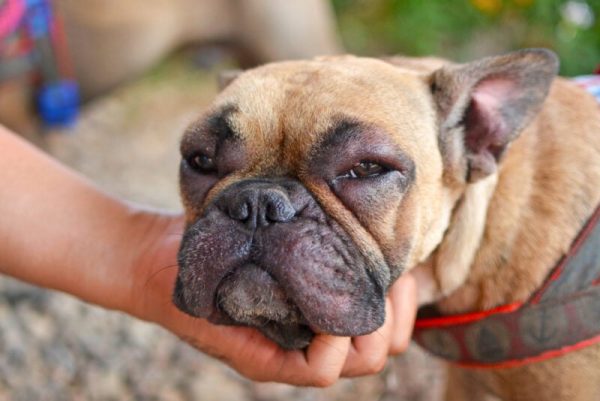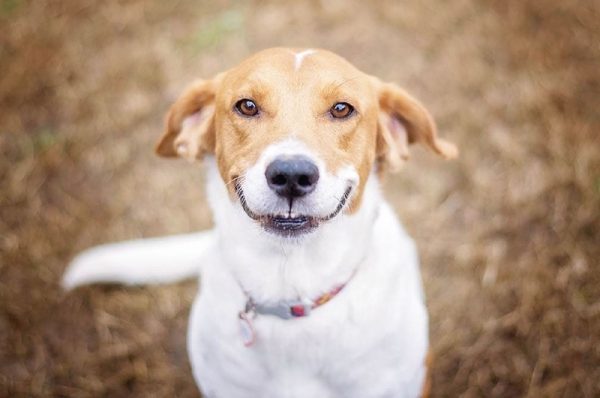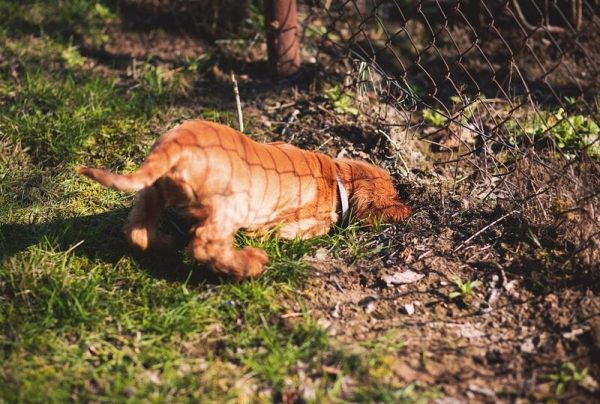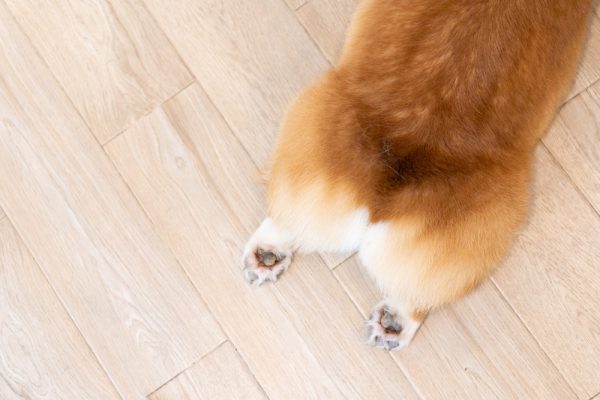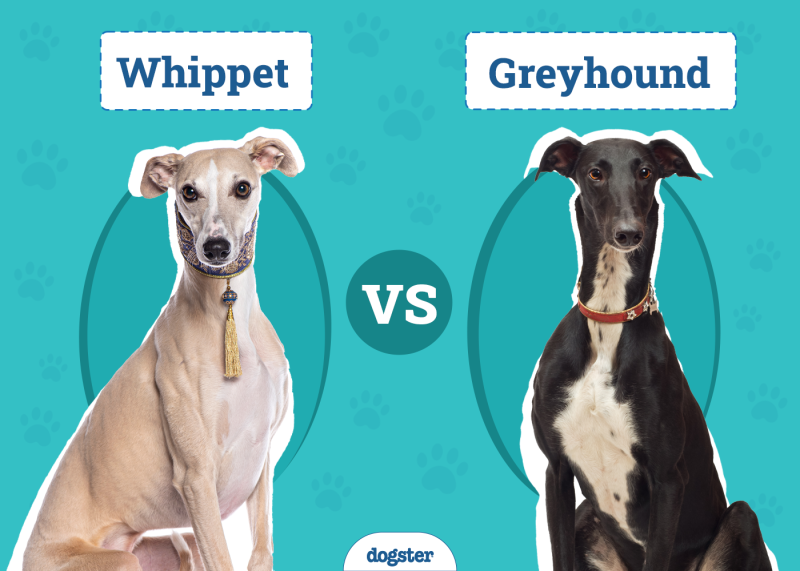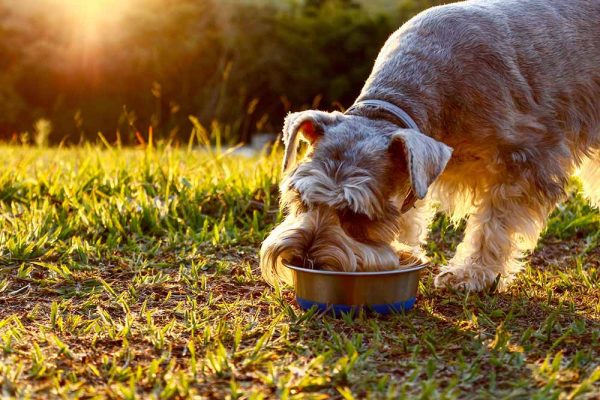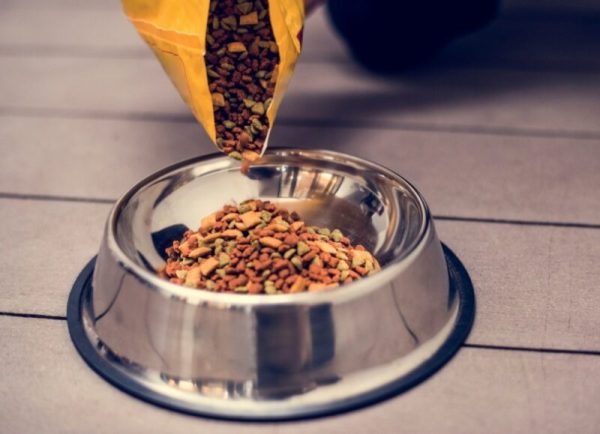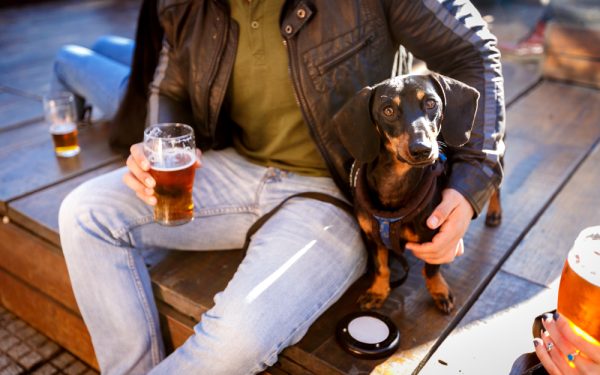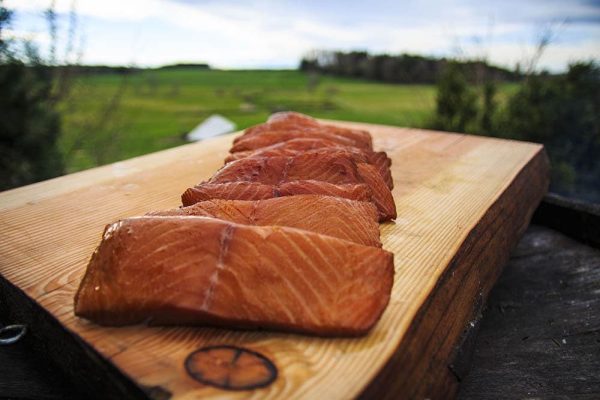In this article
View 8 More +The Rhodesian Doberman is more than an imposing protector. Combining the Rhodesian Ridgeback and Doberman Pinscher, this mix is as lovable as it is formidable, building upon its parent breeds’ shared family loyalty, affection, and physical abilities. Discover how this cross can perfectly match the right owner as we explore the Rhodesian Doberman’s care, temperament, and traits.
Breed Overview
Height:
24–28 inches
Weight:
60–100 pounds
Lifespan:
10–12 years
Colors:
Wheaten, red, black, blue, fawn
Suitable for:
Active families with older children, those wanting a good guard dog
Temperament:
Loyal, intelligent, loving, fearless, easy to train
The Rhodesian Doberman mixes the lion-hunting Rhodesian Ridgeback with one of the finest working dogs imaginable, the Doberman Pinscher. Though they have different origins, both came into existence as faithful guardians of the home.
The Rhodesian Ridgeback hails from southern Africa. Centuries ago, the Boers bred their European dogs with native ridgeback dogs to safeguard their property from numerous threats, including local lions. The mixed breeds were as physically fit as they were fearless, vigilant, and protective of their territory.
We could say the same about Doberman Pinschers, though they gained courage, charisma, and cooperation in a different venue. The breed first appeared in Germany in the 1800s. A part-time tax collector, Karl Dobermann, developed the working dogs to protect himself from bandits while on his rounds. By combining several breeds, he found success in this responsive, noble, and intimidating cross. Over the decades, Dobermans gained popularity for their exceptional character.
Rhodesian Doberman Characteristics

Rhodesian Doberman Breed Puppies
Rhodesian Doberman puppies are uncommon designer dogs. You’re unlikely to find one of these mixes from a reputable breeder. Dobermans still make for one of the more common Rhodesian Ridgeback mixes, so you may have luck finding one through a local shelter or online network like PetFinder or Adopt a Pet.
Puppyhood is a crucial time for a Rhodesian Doberman. While they bring energy, confidence, and intelligence to any home, directing it in a positive manner depends on an experienced, patient, and assertive owner. Training, socialization, and attention are crucial in developing well-mannered dogs. They excel in obedience and can quickly become dependably compliant with early professional training.


Temperament & Intelligence of the Rhodesian Doberman
Rhodesian Ridgebacks and Doberman Pinschers are athletic and disciplined work-oriented breeds. They are eager to please their owners but need activity to keep from becoming bored or destructive. Dobermans can often be clingy Velcro dogs, and both breeds are highly affectionate. Expect a Rhodesian Doberman to have a similar need for attention.
Designed to have a job, the Doberman Pinscher and Rhodesian Ridgeback boast high intelligence. The Doberman is the fifth most intelligent on Coren’s ranking of dog breeds, offering a highly biddable, disciplined, and alert temperament. The Rhodesian Ridgeback is also relatively astute, but as a hound, their independence can make their Rhodesian Doberman offspring a bit more challenging to control.
With their protective nature, Rhodesian Dobermans can be aloof with strangers. They won’t be aggressive, but they take time to build trust, emphasizing the importance of social engagement from a young age.
Are These Dogs Good for Families?👪
Rhodesian Dobermans can be incredible family dogs and often love nothing more than having a well-numbered pack to protect. They are loyal and watchful, particularly over children, and will work tirelessly to ensure the safety of their territory and those they love and trust. Patience and a gentle, even temper make them good with children, though rough play could put either party at risk.
Does This Breed Get Along With Other Pets?
Rhodesian Dobermans benefit more from early socialization than most dogs when you’re thinking of pairing them with another animal. Male Rhodesian Ridgebacks and Dobermans can be aggressive toward other male dogs in the house, and the Ridgeback’s pronounced prey drive can cause trouble with cats. If they can grow up with the other pet and cement a workable dynamic, Rhodesian Dobermans can get along well with other animals in the house, especially dogs.

Things to Know When Owning a Rhodesian Doberman
Food & Diet Requirements🦴
Rhodesian Dobermans can vary considerably in size, with daily food requirements ranging from roughly four to eight cups as adults. Meals should occur twice daily. Puppies need more calories through 3–4 daily feedings. With a more muscular and energetic dog, you must ensure a high-quality protein-rich diet. Talk to your vet about proper nutrition based on your dog’s activity level.
Exercise🐕
If your Rhodesian Doberman inherits their energy from the Doberman Pinscher, prepare for a lively dog. Rhodesian Ridgebacks are also energetic. But with the Doberman, an unstoppable case of the zoomies is always possible.
Vigorous daily exercise is critical. Rhodesian Ridgebacks and Dobermans have exceptional athleticism and stamina, giving you plenty of options to have fun keeping fit with your dog. Hiking, biking, and running are perfect activities to enjoy together. A large, fenced-in backyard space is ideal, especially if you have difficulty keeping up with your pup.
No matter how you work out your dog, give your Rhodesian Doberman at least an hour of daily exercise. Inside, offer toys and puzzle games to keep them stimulated. Exhausting them physically and mentally will keep them from becoming destructive and aggressive. Entertainment is especially critical as you leave your dog alone for several hours during the day.
Training🎾
Training Rhodesian Dobermans is as easy as it is necessary. Though quick learning and happy to work with their owner, the mixed breed’s Rhodesian side can present some stubbornness. At the same time, they’re sensitive.
You must show consistency and dominance to control the relationship, but praise, rewards, and other forms of positive reinforcement should guide your communication style. When you gain their respect, Rhodesian Dobermans will reward you with extraordinary receptivity and effort.
Grooming ✂️
Rhodesian Ridgebacks and Dobermans share several personality and physical traits. And thankfully, a short and easy-to-groom coat is one of them. Rhodesian Dobermans shed consistently, but the short, glistening hair only needs one or two weekly brushing sessions and the occasional bath. Clean around the ears and eyes as necessary, and trim the nails about once a month to keep them healthy for outdoor activity.
Health and Conditions🏥
Rhodesian Dobermans aren’t as prone to unique diseases as the purebred dogs in their lineage due to a broad genetic pool and the supposed “hybrid vigor” of crossbreeds. Still, certain conditions affect dogs with their build, such as hip dysplasia and gastric dilatation and volvulus.
Though rare, Ridgeback dogs can develop a dermoid sinus. The defining ridge running along the dog’s spine is a genetic mutation, a dominant trait expressed when a dog has at least one copy of the ridgeback allele. The ridgeback trait is rarer in mixes, but if it appears, it carries a slight chance of developing a tubule extending down to the spine. If infected, a dermoid sinus can potentially lead to severe neurological diseases.
- Von Willebrand’s Disease
- Thyroid problems
- Progressive retinal atrophy
- Dermoid sinus
- Gastric dilatation and volvulus
- Dilated cardiomyopathy
- Hip and elbow dysplasia
Male vs. Female
Male Rhodesian Doberman mixes are larger than females, and you can expect a few personality differences. Males can be more high-energy and outright aggressive with other males. Though they take longer to mature, many find males easier to train and less independent. They can also be more protective of their family and home, but you can expect a devoted dog regardless of sex.

3 Little-Known Facts About the Rhodesian Doberman
1. They Aren’t Huge Barkers
If you were to rank dog breeds based on professionalism, Dobermans and Ridgebacks would likely be at or near the top of the list. Trainable and determined, they always perform to the best of their abilities. Part of that is apparent in their remarkable poise.
While the Rhodesian Doberman is wary of strangers and even likely to get between their owner and someone they don’t know, they are unlikely to get aggressive unless necessary. They’re alert but not excitable. As a rare barker, they often only vocalize when they need your urgent attention.
2. They Excel at Competitive Sports
The conformation ring may not have them, but Rhodesian Dobermans can be a welcome sight in the competitive arena. Both parents are impressive athletes, guaranteeing a hardy crossbreed. Agility and lure coursing competitions are perfect settings to expend energy in an enriching way for you and your dog.
3. Rhodesian Dobermans are Suited for Numerous Jobs
The Rhodesian Ridgeback is, in many ways, the ultimate hound, while the Doberman was specifically developed for work. You can expect a naturally skilled individual ready to put their powers to good use in a mix of the two. Beyond sports, Rhodesian Dobermans can perform at a high level as service dogs and in search and rescue tasks.

Final Thoughts
Though hardly the most versatile of crossbreeds, Rhodesian Doberman mixes combine similar temperaments to offer a predictable personality with incredible potential. They’re smart, capable working dogs who love nothing more than spending time with family after a solid day of running around. If you can supply a firm hand and steady leadership, these purpose-driven dogs are sure to impress with their athleticism, grace, and faultless loyalty to those they love.
Featured Image Credit: Left – Nina Quka, Pexels | Right – GracefulFoto, Shutterstock




